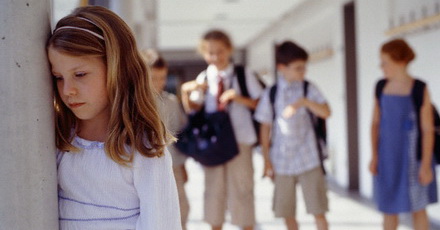School & Social Avoidance in Children With Social Anxiety
 Transitioning into a new social experience, such as entering a new school year or attending a new summer camp, can be anxiety provoking not just for students, but parents and care givers as well. When children experience anxiety and avoid periods of social interaction, happiness and psychological wellbeing becomes challenged. As these anxious symptoms come to rise, parents and occasionally children should begin to ask the question “WHAT’S REALLY GOING ON HERE.”
Transitioning into a new social experience, such as entering a new school year or attending a new summer camp, can be anxiety provoking not just for students, but parents and care givers as well. When children experience anxiety and avoid periods of social interaction, happiness and psychological wellbeing becomes challenged. As these anxious symptoms come to rise, parents and occasionally children should begin to ask the question “WHAT’S REALLY GOING ON HERE.”
The DSM-5 describes Social Anxiety as anxiety based on the possible scrutiny of the self which arises in social settings. A fear of “being found out” or being perceived as anxious in front of peers can also cause distress among those who suffer with social anxiety. The National Social Anxiety Center shares that roughly 12% or 15 million Americans will endure social anxiety at some point in their lives.
While it is important to take it easy and let the small stuff roll off your back, it is important to keep a look out for behavioral attributes of social anxiety that your child may be expressing…
-Avoidance to social situation
-Anxious apprehensions to public places
-Negative self-evaluation
-Skills deficit
Commonly expressed (but not limited to) social anxiety (phobia): crying, freezing, clinging, or failing to speak in social situations (DSM-5)
Researchers, Clark and McManus, shared that patients with social anxiety (phobia) may have a tendency to interpret ambiguous social events in a negative fashion. It is also not uncommon for those who suffer from social anxiety to confuse a mild discomfort for a catastrophic event. A reason why the mild may be perceived as catastrophic, is because negativity directed toward the child can cause them to use the experience as an affirmation that the situation is really as bad as it seems. It is natural for children (and some parents) to rationalize a child staying within the comfort of their own home, however, social anxiety is a pervasive disorder which means that if the issue is left untreated, it can and usually will become worse.
When the minor is deemed catastrophic, the greater social portion life becomes altered…
Where do children spend the majority of their social lives? SCHOOL.
Attributes of School refusal have been shown to be…
-Distress at school
-Begging to go home
-Leaving school early
-Refusing to go to school completely
A key reason for the importance in keeping a look out for signs of social anxiety/school refusal, is so that the issue can be stopped in its tracks. Through the practice of Cognitive Behavioral Therapy (CBT), the psychotherapists at GroundWork Counseling examine the child’s cognitive or thought processes which are often different for each child and family. By engaging with the thought, feeling, behavior model that is CBT, children begin to realize that the anticipatory anxiety, anxiety during the social event/school and post event processing are the phases that keep social anxiety going and must be addressed. In one study, a group of adolescents who exhibited school refusal were treated with CBT. These children were seen to improve from pre-treatment (15%) to 2-month follow-up (48%), at which time almost half of the adolescents were observed to be attending school at least 80% of the time (Journal of Anxiety Disorders).
At Groundwork Counseling our therapist specialize in the treatment of anxiety and school refusal utilizing evidence-based Cognitive Behavioral Therapy. If your child is struggling, we’re here to help.
Speak With An Orlando Child Counselor
407-378-3000





